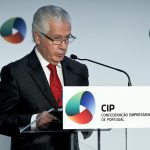Angola’s battle to be less oil dependent
Angola’s ambassador to Portugal outlined his country’s plan to diversify its economy and become less reliant on fluctuating oil prices.
Addressing business leaders at the International Club of Portugal (ICPT) in Lisbon on Friday, Carlos Alberto Fonseca said that diversification away from oil was vital in order to ensure the country’s exchange rate stability on the national currency the Kwanza.
“Diversification will improve exchange rate fluctuations. It is the only way to provide sustainability to our economy” he said in answer to a question from a businessman who highlighted that oil price fluctuations. — Oil is Angola’s main export — made it difficult for investors to risk investing in the African state.
“Companies should invest in Angola because investing in the country does not mean that these investing companies will lose their export capacity, but rather they will help make the Angolan economy more sustainable and up its capacity to be able to continue the flow of imported products” the ambassador said.
In his speech, the ambassador emphasised that Portugal is “an important and vital partner” and that Portuguese companies should invest in Angola and set up in the country rather than just export their goods to Angola.”
Talking on the theme “The Diversification of the Angolan Economy,” Ambassador Fonseca outlined that according to the World Bank Angola is the third largest economy in sub-Saharan Africa after Nigeria and South Africa with a GDP of US$105Bn and these three countries represent 60% of sub-Saharan Africa’s GDP.
Since its independence from Portugal In 1974 after the Colonial Wars (1961-1974) its main and most important international export has been oil. After a period of centralisation which followed an internal civil war (1975-2002) there was a need for a change in paradigm.
This has led to a strategy by the government to reduce Angola’s dependence on almost its only significant product oil which with just 4% of the active population produces around 80% of the country’s entire wealth.
This means using the country’s other rich natural resources but as some experts have stated, while diversification may have desirable effects on key challenges facing resource rich economies, diversifying them is not straightforward.
In fact, Angola has the second most concentrated economy in the world in terms of exports, only beaten by Iraq.
Fonseca said that the fragility of an economic system that relied on almost one product was exposed in 2014 when the oil prices collapsed to under $35 from a peak of $115 because of rapidly increasing demand in markets like China and India and production cuts by the OPEC countries to the low caused by a deep global recession killing demand for oil and gas.
Angola too has been in the grip of an economic crisis since 2014 which got worse not just because of lower oil prices but because the country has high debts and has to honour financial commitments to the IMF.
Angola has signed a three-year $3.7Bn loan agreement with the IMF and has moved towards a policy of wholesale privatisation of some public and government assets, the phasing out of subsidies on several products, such a refined fuel and measures to ensure the stability of Angola’s debt.
However, according to the Angolan President, João Lourenco, Africa’s second biggest oil producer is expected to return to growth next year as the government attempts to diversify its economy dogged by corruption, falling crude prices and output. “We expect the economy to return to growth due to the output from the non-oil sector” he said in his state of the nation address this month.
With the start of a new political cycle and regime in the country two years ago the strategy is to reduce the public sector and reliance on oil revenues and create a more attractive business environment including private overseas investment.
Various economic and financial measures have been adopted at a macroeconomic level. When in 2016 the public spending were bigger than the revenues because of successive budgetary deficits, there was a programme of denationalisation begun in 2018 resulting in positive balance worth around of 2% of GDP.
Because 51% of Angola’s revenues are being used to service its debts, its public debt today is around 90% of GDP and the Government intends to reduce these numbers by 2022.
According to the latest Bloomberg survey, Angola’s GDP shrank 0.2% in 2019 while the country’s oil exports next month may fall to their lowest levels in 11 years. That drop has put a strain on a country that depends on oil for more than 90% of its exports.
Diversification has become the new cornerstone of Angolan policy since Lourenco took power in 2017 from José Eduardo dos Santos who ruled for 38 years.
Transparency International ranks Angola as one of the world’s most corrupt nations and the Government is trying over 45 cases in court to recover more than $4.1Bn allegedly stolen from the state.
The Authorities are said to have seized cash, cars and properties while Angolan lawmakers passed a law to allow for assets that were illegally acquired by public officials to be confiscated.
The main problem facing Angola today hails from its past and may have been political rather than economic. Institutional dysfunctions, in particular a lack of democratic accountability under the Eduardo Dos Santos family regime, created problems of patronage and rent seeking.
Public sector resources were used to shore up the power of the elite to secure the continued access to revenues from oil resources rather than economically sound activities that would improve development outcomes for the population as a whole and, as a result, the Angolan economy.










